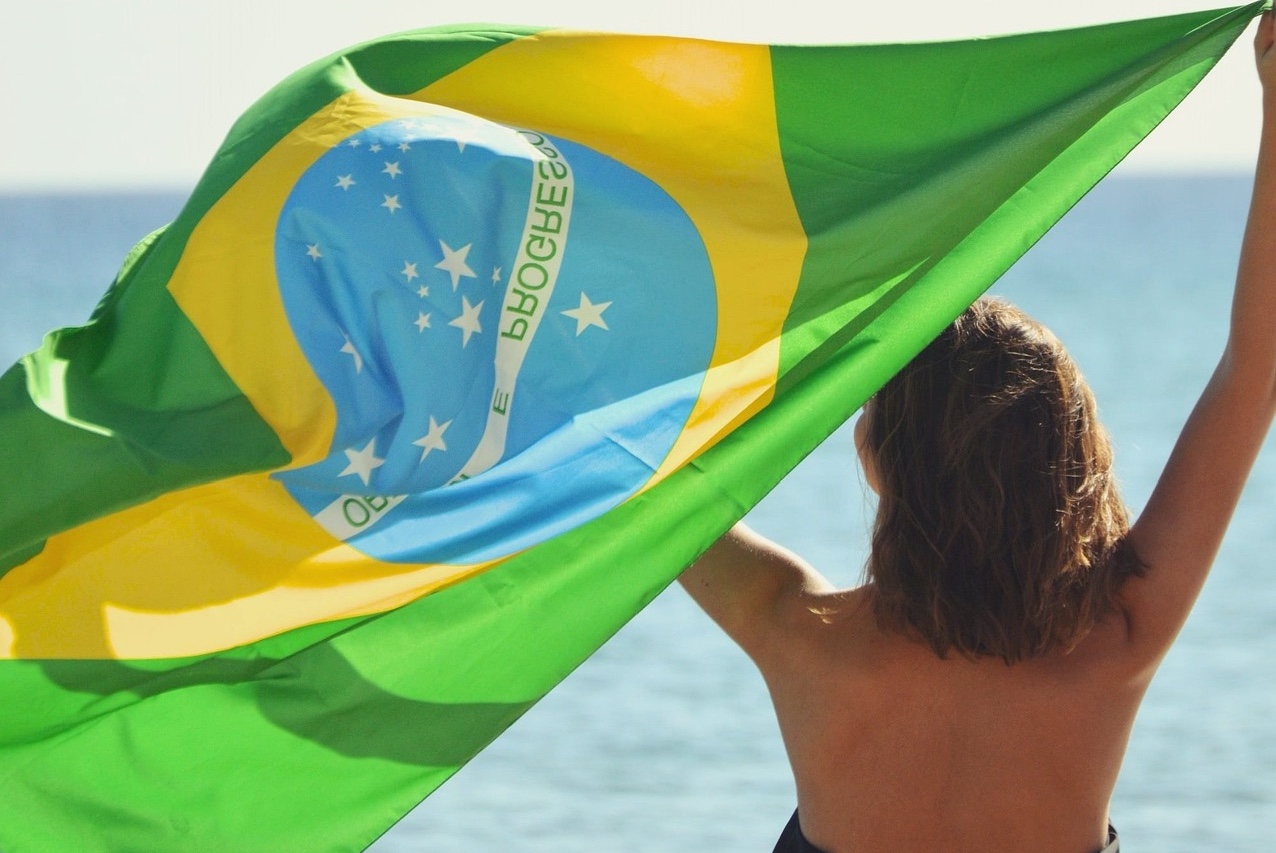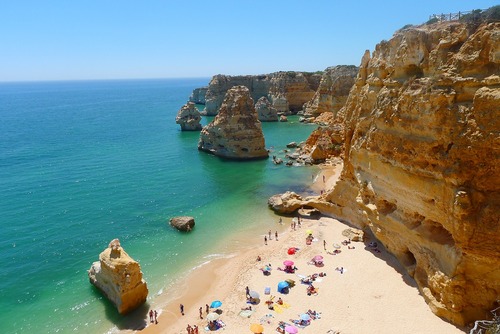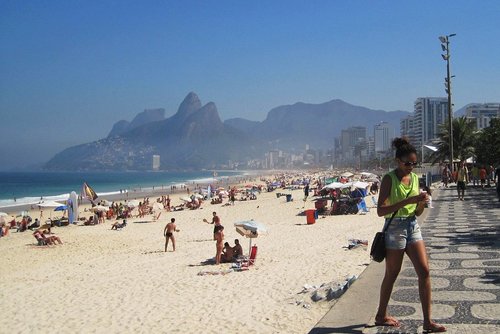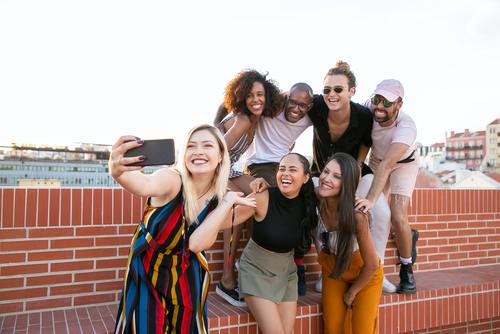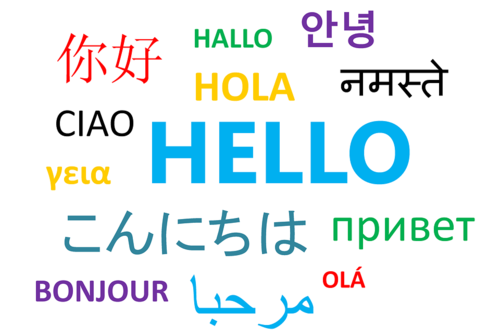In Brazil, not many local people speak English, and so knowing at least the basics of the language will really help. This goes for if you are planning to travel independently, or book a group tour of Brazil, being able to speak even the most simple of words will help you.
Despite the fact that Brazilian Portuguese is very different from European Portuguese, these survival words and phrases will help you to get by in Brazil or in any Portuguese speaking country even if you don’t know how to say anything else.
If you are keen to be more than your average tourist and are keen to stay longer, you might want to consider going to study in Brazil. There are lots of language schools located offering short and long term Brazilian Portuguese courses in Brazil which are a great way to get cultural immersion.
View our essential basic Brazilian Portuguese words and phrases for tourists which will be very useful when travelling in Brazil:
General Greetings
- Hello/hi - Ola
- Bom dia - Good morning
- Boa tarde - Good afternoon
- Boa noite - Good evening/ Good night
‘Boa noite’ is used for both ‘good evening’ and ‘good night’. You can wish people ‘good night’ from 6 p.m. onwards.
It’s very polite and quite common to greet people using the sentences below:
- Tudo bem?
- E aí?
If someone greets you like that you can greet them back in the same way. Common ways of asking how someone is doing and the response is also ‘tudo bem’ in an affirmative tone.
Saying goodbye:
- Tchau - Bye
- Até mais / Até logo / Até mais tarde
Saying one of these when you mean to see the other people later on or soon or ‘falow’ (slang, very informal) which means ‘bye’ as well.
- Sim - Yes [….]
- Não - No […]
- Por favor - Please
You can use ‘por favor’ in probably every situation you can imagine. However, in Portuguese when you ask for something or ask someone to do something, you don’t have to say ‘por favor’ all the time, like you normally would do in English. It’s worth saying that in Portuguese, the intonation of your voice will show whether you’re being kind and polite or simply bossy and rude.
- Obrigada (women will say) / Obrigado (men will say) - Thank you
- De nada - The equivalent in English is ‘you’re welcome’
- Legal! - Equivalent to the modern slang ‘cool’.
- Está bem - OK
Com licença
‘Com licença’ or simply ‘licença’ is what you would say for ‘excuse-me’ . For example, if you are in a crowded place and need to ask people to move because they are in your way. You can say ‘licença, por favor ‘ and it will sound quite polite.
You can also simply say “tá” (very informal). It means that you agree with what someone says or suggests. Brazilians also say ‘beleza’. It literally means ‘beauty’ but Brazilians also a slang used for when you agree with something or get someone’s message , like:
- Q - Vamos nos encontrar amanhã à noite às 8? (Shall we meet tomorrow night at 8?)
- A - Beleza!
Or
- Q - Você vira à direita e atravessa no farol. (You turn right and cross over at the traffic lights)
- A - Beleza/ Eu entendi. (Okay, I got it)
Desculpe - Sorry
Used it when you did something wrong and would like to apologise. It can also mean that you didn’t understand what someone said and you would like them to repeat.
Como?
When you don’t understand what someone says, like when we say ‘sorry’ or when we would like them to repeat what they said.
Helpful Everyday Words & Phrases
- Como se diz +word in English em português? - How do you say + word in Portuguese?
- Como se pronuncia +word ? - How do you pronounce +word?
- Use these phrases every time you would like someone to teach you some word or pronunciation in Portuguese. You probably can even make friends like that!
- Eu falo um pouco de português - I speak little English
- Desculpe. Eu não falo português - Sorry. I don’t speak Portuguese.
Two phrases that can really help you if you get lost:
Brazilians are usually very friendly so don’t hesitate to ask for directions or help if you need. You can also use one or two of these sentences together to make it more natural. Example:
- Onde fica o ‘place’? - Where is ‘place’?
- To ask where a place is - Como eu posso chegar em ‘place’?
Shopping / Food
- Quanto custa? - How much?
- A conta, por favor – The bill, please.
- Uma cerveja estúpidamente gelada, por favor – or just- uma cerveja , por favor
- Não, obrigada - No thanks
Going shopping? If what you are after doesn’t have a price tag on, you can ask the sales assistant ‘quanto custa?’ pointing at what you need so they can help you.
A glass of some ‘stupidly cold beer’ (literally) it’s a beer that has got to be served quite cold and it’s Brazilian’s favourite drink along with ‘caipirinha’ (traditional Brazilian drink) and coffee. Both 'caipirinha' and beer are very refreshing drinks and perfect for the hot climate in Brazil.
Numbers
- Zero - Zero
- One - Um
- Two - Dois
- Three - Três
- Four - Quatro
- Five - Cinco
- Six - Seis
- Seven - Sete
- Eight - Oito
- Nine - Nove
- Ten - Dez
Days of the Week
- Week - Semana
- Monday - Segunda-feira
- Tuesday - Terça-feira
- Wednesday - Quarta-feira
- Thursday - Quinta-feira
- Friday - Sexta-feira
- Saturday - Sábado
- Sunday - Domingo
Speaking (or at least trying) to speak Portuguese can be fun and will definetely enrich your cultural experience. We suggest you print this page out and take it with you in case in travel to Brazil or any other Portuguese speaking country. You can also add more words and phrases to your list as you go.
By Gabriela Dias
If you work like to do more than just sightseeing, these pages will help:

